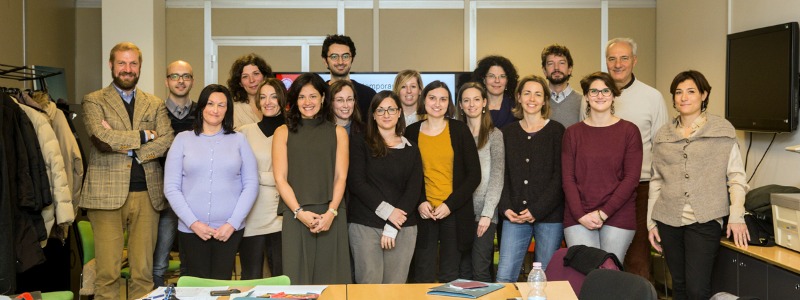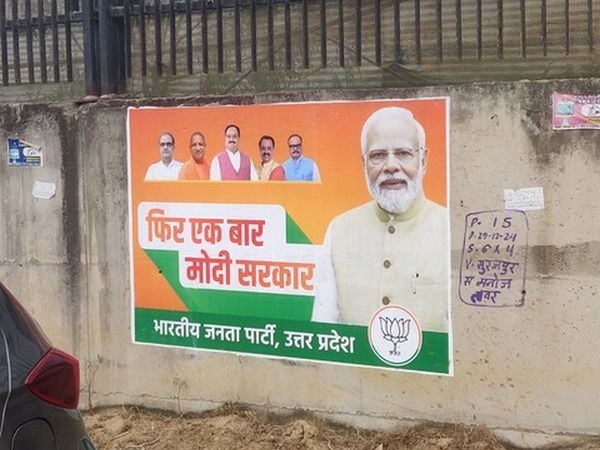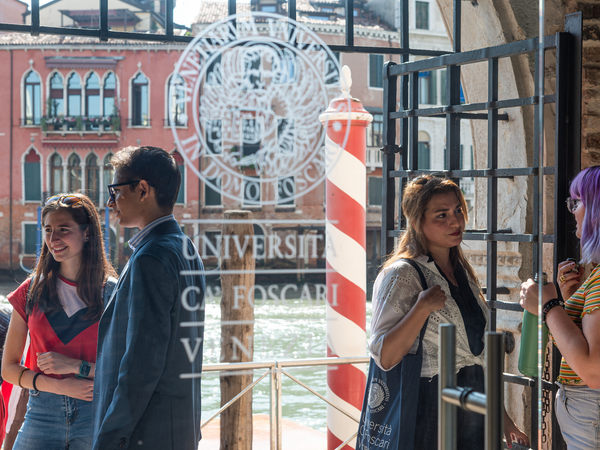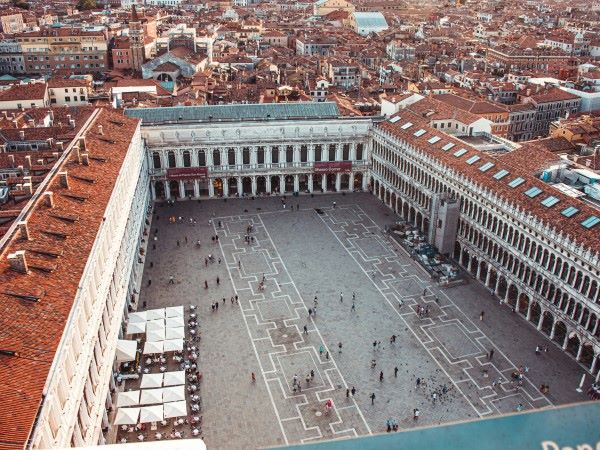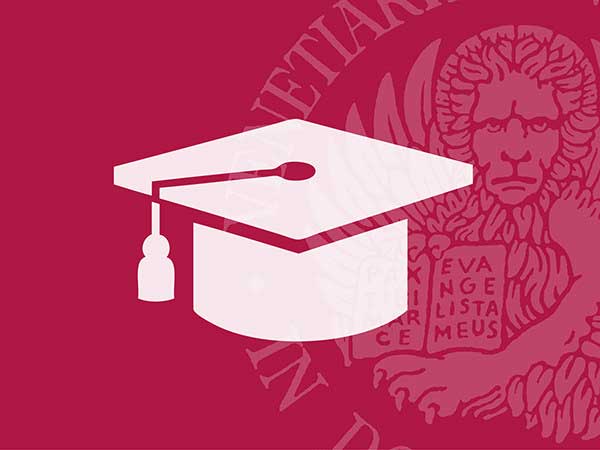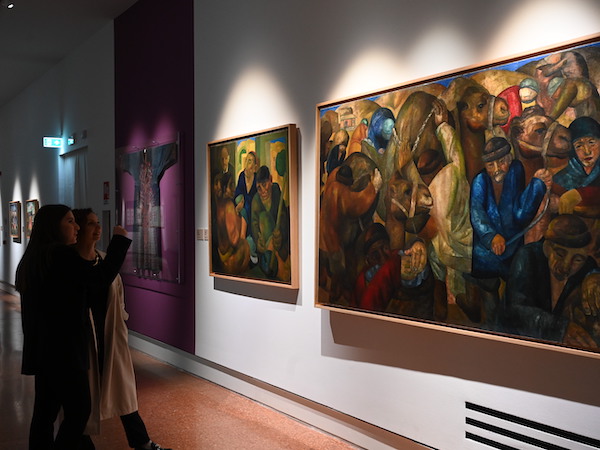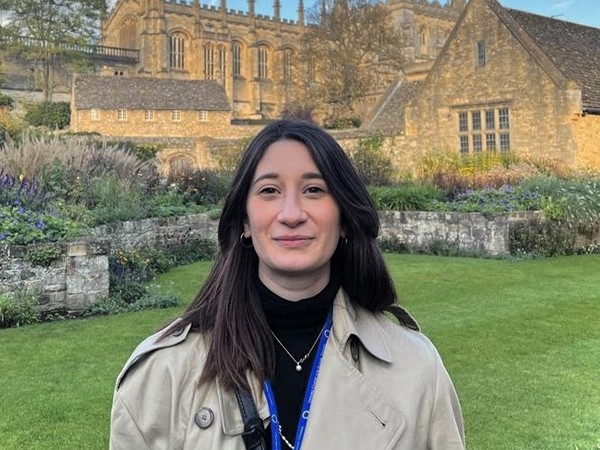Is it possible to make the information behind a painting, or an archaeological site available? How can an archivist, an art dealer, a teacher propose the content of their jobs in an efficient and innovative way? How to make cultural workers and the public aware of the potential possibilities of new technologies?
A new programme at Ca’ Foscari University aims to train ‘cultural workers 2.0': people competent in humanities as well as computer science and the digital world, that may predispose new presentation techniques of cultural heritage and knowledge.
It is called the Master in Digital Humanities, the second edition will begin in November following the success achieved by the programme in the academic year 2015/2016, which ended with a graduation ceremony on October 21st.
The post-graduate study programme is coordinated by the Department of Humanities at Ca’ Foscari University in collaboration with the Department of Environmental Sciences, Informatics and Statistics and with the École Polytechnique Fédérale de Lausanne – EPFL. The programme is among the first in Italy dedicated to training within the emerging world of digital humanities, aimed at graduates in humanities and computer science: operators of cultural, artistic and monumental heritage (as archivists, librarians, staff of museums, art collections and archaeological sites), but also teachers, researchers and academics. This is valuable training for a city like Venice, which puts itself among the most advanced European countries, and puts the initiative close to experiments undertaken only in London and Cologne.
A new approach that consists of an annual course of 300 hours of lectures and workshops in English and Italian, to develop technical and vocational skills in using software and hardware - from design and database processing, scanning, digitization and elaboration of documents, from "data mining" to 3D renderings, or to historical GIS; this is followed by 250 hours of project work or internships in agencies and partner companies to test the main issues addressed in the educational activities in a practical setting.
The first edition of the Master took on 16 students between 30 and 40 years of age, professionals in the cultural sector from various national fields: operators of digital libraries and centers, teachers, cataloguers and digital programmers, curators, a film editor, some students and researchers, and a recent graduate. The themes have therefore aroused interest among professionals and employees in companies that require technology skills and critical perspectives possible from the meeting between computer science, humanities and social sciences.
Equity investments have been entirely supported by Samsung Electronics Italy Inc.: the Korean company is already the promoter of initiatives in Italy such as Smart Coding and the App Academy, it has also provided digital instrumentation useful in the courses, such as Gear VR visors, monitors and a multi-touch table.
The Master, thanks to its professors, closely follows the project 'Venice Time Machine’, which is being developed at EPFL Lausanne and at the Archivio di Stato in Venice, for the creation of a multi-dimensional model of the city and its evolution over time.
Other supporters have contributed to the visibility of the Master, such as Venetian Heritage and the Venice Accademia Galleries, who hosted a lecture given by Professor Chiara Piva to demonstrate the projects Schema and "La vita delle opere".
Among the challenges and opportunities available to students is also the ability to participate in relevant external projects, such as invitations to the BNL Media Art Festival in Rome (13-17 April 2016) and Hackathon The Future Museum Challenge, sponsored by Europeana Space in Venice ( 17- 18 March 2016), in addition to the organization of the Ca’ Foscari seminar on READ software - Research Environment for Ancient Documents.
External institutions of national and international importance have offered interesting project opportunities, some of which are already in use at these institutions. The Sveviano Museum in Trieste, with involvement from the Joyce Museum and the A. Hortis Library, has decided to use an augmented reality mobile app created with InVision Software as a first step towards the future project "The City of Paper - A prototype of the Trieste virtual literary museum": an alternative and fun way to approach a literary museum. Thanks to Cristina Fenu and Elena Griguol it is now possible to walk around the city discovering, framing places or monuments with a smartphone, contexts and stories of Italo Svevo's life, through content that will appear along the "Svevo Virtual Tour".
Other cultural organizations have come together to explore the potential of augmented reality technologies: the Bardini Museum in Florence, the museum MART of Trento and the Museion in Bolzano together with the Bruno Kessler Foundation and the Marciana Library in Venice are involved in the project "Exploring Augmented Reality for Cultural Heritage ", a triptych of study and experimentation with Wikitude software, conducted by the students Mariachiara Mazzariol, Valentina Russo and Geneva Utari.
Student Alessandro Piras was involved in the project at the Ca’ Foscari University for the reconstruction of a 3D underwater wreck, led by Professor Andrea Torsello and Prof. Arianna Traviglia.
The Giorgio Cini Foundation - Glass Study Centre, the ETT Inc. of Genoa and Pelham Communications of London are among partner agencies offering exciting opportunities for internships and comparison with the experience of the Master.
The 2016/2017 edition, which will begin in the second half of November, promises equally exciting results, moving the interest of even younger participants that feel the need for highly professional training after their studies which can provide an edge towards innovative job opportunities: 19 successful applicants, including many students and recent graduates, and attraction that covers a number of regions and even beyond national boundaries, with requests from Iran, Nigeria, Serbia and Mexico.





